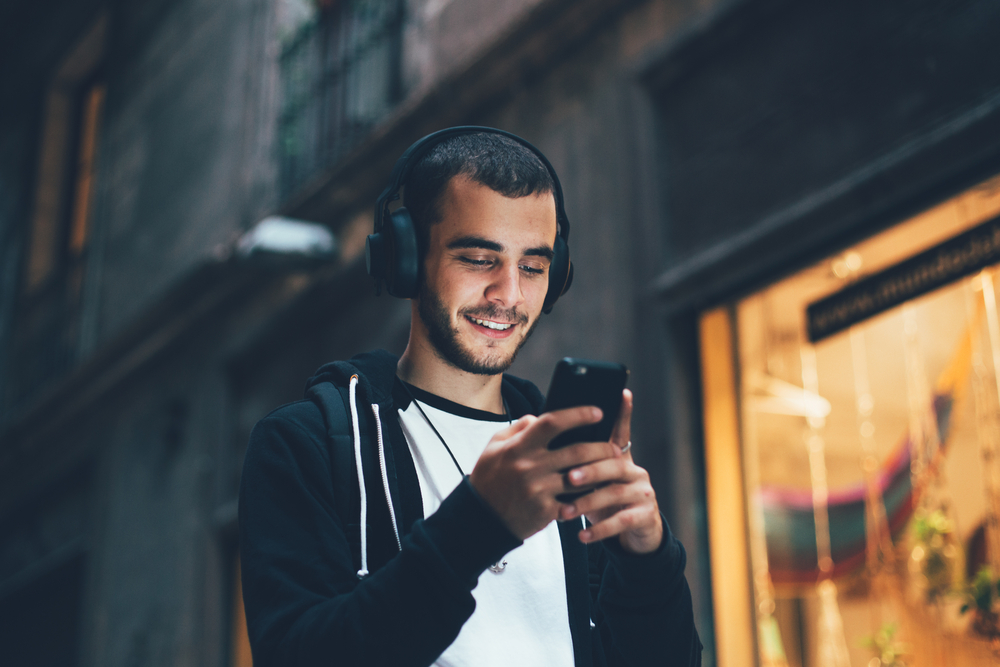
Meet James, a passionate music fan who seamlessly incorporates Spotify into his work regimen, switches over to Pandora during his jogs, and curates playlists for every instance conceivable, from cardio sessions to cooking and even gaming. His headphones are his constant partners, converting his life into a completely soundtracked experience. However, while James finds relaxaction and joy in the immersive world of music, the very thing he cherishes could be quietly damaging his priceless sense of hearing.
Concerning our ears, there are both safe and dangerous ways to indulge in music. Regrettably, many of us tend to gravitate towards the latter.
How does lengthy periods of music exposure lead to hearing loss?
Prolonged exposure to loud sounds can lead to a decline in your auditory function. We’re used to regarding hearing loss as an issue associated with growing old, but an increasing amount of research suggests that it’s really the build-up of noise-related damage that is the issue here and not anything intrinsic in the process of aging.
Younger individuals are more prone to noise-induced damage as their ears are still in the developmental phase. And yet, young adults are more likely to be dismissive of the lasting hazards of high volume. So there’s an epidemic of younger people with hearing loss, thanks, in part, to widespread high-volume headphone use.
Can one listen to music without any safety issues?
Unlimited max volume is clearly the” dangerous” way to listen to music. But there is a safe(er) way to enjoy your tunes, and it typically includes turning the volume down. The general guidelines for safe volumes are:
- For Adults: No more than 40 hours of listening on a device, and keep the volume below 80 dB.
- For Teens and Minors: You can still listen for 40 hours, but keep the volume level lower than 75 dB.
Breaking it down, you’re dealing with roughly 5 hours and 40 minutes of listening every day. That might seem like a lot, but it can go by rather quickly. Despite this, most people have a well-developed understanding of time management, a skill that is usually perfected during early childhood.
The harder part is monitoring your volume. On the majority of smart devices, computers, and televisions, volume is not computed in decibels. It’s measured on some random scale. Perhaps it’s 1-100. But maybe it’s 1-16. You might not have any clue what the max volume on your device is, or how close to the max you are.
How to properly track your music volume
Numerous free noise monitoring apps can be downloaded for both iPhone and Android devices to tackle this issue. These apps supply real-time information into ambient noise levels, empowering users to adjust their music volume appropriately.
For this reason, many audiologists suggest utilizing one of the numerous noise level tracking apps available at no cost. These apps– widely available for both iPhone and Android devices– will give you real-time readouts on the noises surrounding you. In this way, you can monitor the decibel level of your music as it plays and make changes accordingly.
Comparing relative volumes: from garbage disposals to dishwasher
As example, 80 dB is approximately equivalent to the noise emitted by a common garbage disposal or dishwasher– audible, yet not overly loud. Recognizing this volume level is important because it denotes the point at which hearing loss becomes a real and substantial worry.
It’s important to exercise heightened vigilance when noise levels exceed this critical point. Think about decreasing your exposure to exceedingly loud music by listening to specific songs at the highest volume instead of listening to entire albums.
Recurring exposure to elevated volume levels can trigger hearing complications including tinnitus and eventual hearing loss. By being mindful of when our ears move into the danger zone, we enable ourselves to make informed choices, with the ultimate goal of promoting safer listening practices.
Make an appointment for a hearing assessment
For better prioritization of your hearing health, it is recommended to contact a hearing specialist to book a thorough hearing examination. Practical measures like regular assessments can detect any possible problems early on, enabling timely interventions and personalized recommendations to safeguard your vital sense of hearing.




